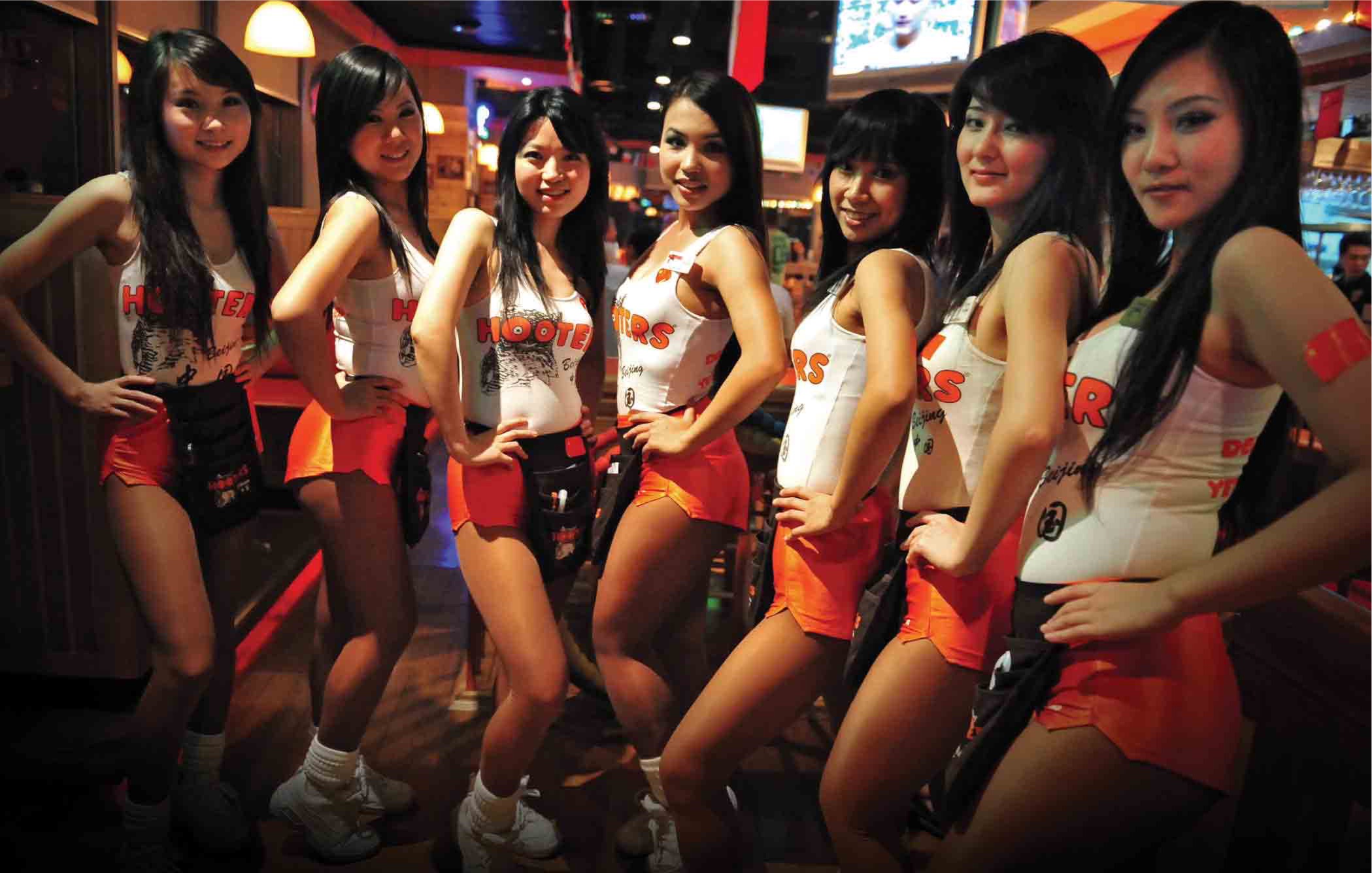The video starts with clips taken from music videos and commercials – of skimpily clad women in bikinis and lingerie, rolling on the floor or in other suggestive positions. Then it cuts to real-life teenage girls imitating what they have seen while the statistics flare across the screen: 90 per cent of anorexia victims are girls between 12 and 25, for example; and 50 per cent of secondary students experience sexual harassment.
This is the teaser for a documentary being made by The Women’s Foundation in partnership with Women Helping Women Hong Kong. She Objects looks at how women are portrayed in media and advertising in Hong Kong and explores the link between the treatment of women and young girls as sex objects and the dangers that they face in the real world: low self-esteem, eating disorders, sexual harassment and violence.
Tentatively set for release in September, the film is coming to fruition at time when objectification of women has been very much in the public consciousness. A recent tacky and tasteless ad campaign by a new burger joint, along with news that Hooters, an American restaurant chain known for its sexy waitresses, will open franchises in Hong Kong, have drawn a backlash in social media.
But as much as feminist activist Luk Kit-ling welcomes the debate, she laments that it has been a long time coming.
“I think the situation hasn’t got better in the past 30 years,” says Luk, a lecturer on gender issues at Hong Kong Community College and chairwoman of the Association or the Advancement of Feminism.
“Younger women have less of a choice in their jobs because of the economic situation. Sometimes there is exploitation, normally targeted to their gender and their body, and all of this is supported by the media. Mass media is quite a big sector promoting the objectification of women.”
Much of the controversy centred on the provocatively named Double D Burger in Central. Although the owners claim the moniker was shorthand for their “dirty and decadent” menu, its reference is obvious: the size of a woman’s bra cup. Their first ad campaign reinforces this idea, using a towering billboard that featured five women clad only in lingerie eating cheeseburgers, with the suggestive tagline: “In your mouth soon.”
Outrage swelled when the restaurant’s hiring guidelines – which included a requirement that staff
“understand the dirtiness of our burgers” – became public.
Double D subsequently removed the offending adverts and ensuing comments from its Facebook page, but quickly riposted with a new campaign featuring an image of a bare- chested man holding a pixelated cheeseburger above a note: “Apparently we’ve been too saucy so we’re blocking out the naughty bits.”
Having struggled with obesity since childhood, singer-actress Joyce Cheng Yan-yee is conscious of how the media influences perceptions and attitudes about the female body .
“When we’re so used to seeing images [of perfect female forms], our expectations become different. Sometimes, I may think a woman has a wonderful body but many others think she’s too fat or too curvy,” she says.
“Media and advertisements do objectify women. Some of the stuff is a bit overboard and I feel uncomfortable with it. But the sad truth is that sex sells.”
However, Cheng refuses to bow to such conventions. Her new Cantonese single Are You Thin Enough? is an open challenge to the notion of women as objects. Released with a music video parodying Beyoncé’s Single Ladies, the mocking lyrics are a reminder that people should be valued for their inner qualities rather than just a fine physique.
“I want to bring out the message that your self-esteem shouldn’t come from your appearance or from how other people view you,” says the 27- year-old daughter of popular comedian and actress Lydia Shum Din-ha.
Cheng has been under media scrutiny for most of her life and knows how hard it is for female artists to succeed in entertainment when their looks don’t conform to the norms.
But it is not impossible, she says. “The perfect example? My mother.”
(Shum, who died in 2008, maintained a portly figure through much of her career, which spanned four
decades.)
Cheng adds: “I feel that people are attracted to genuineness and, in the end, it’s all about being
relatable – I’m trying to do that.”
At Double D Burger, marketing manager Tony Magnetic has been thrilled at the controversy over their sexy ads, although he insists that they were not designed to provoke such reaction.
“The complaints just kept creating more buzz,” he says. “The only reason why we changed the image was due to construction [issues].”
Although he says the owners “sincerely apologise” if they’ve offended anyone, Magnetic doesn’t get what the fuss is about.
“We are a team of playful men and women who love food and don’t take ourselves too seriously,” he says.
“With this campaign we were comparing the sexiness of burgers to the sexiness of women and men ... Do those people [who complain] feel the campaigns of Tom Ford and Calvin Klein also objectify women?”
For the team at the Women’s Foundation, the answer would surely be yes.
Their She Objects teaser is filled with examples of scantily clad women in fashion advertising, and it is exactly Magnetic’s kind of attitude – the idea that such imagery is just good fun – that makes the project so vital, says foundation CEO Su-Mei Thompson.
“We’re not prudish. Of course, sex sells – you’re not going to get away from that. There’s a fun element to it too,” says Thompson. “But there is a real correlation between how women are portrayed in the media and the way they are treated in real life.”
And the film sets out to show that link.
“What we see in work with young people in Hong Kong is eerily similar to studies we see coming out of the US. As young girls move into adolescence they become very self-conscious about body image, they lose self- esteem and they lose body image.
“Can you draw a direct line between objectification and the way the media portray women? There must be some impact. We know they are heavily influenced by media exposure.”
There have been many studies which show a correlation between images of women and women’s – especially young women’s – lower self-esteem which can lead to unhealthy behaviour like eating disorders. There is also real evidence that seeing sexually explicit imagery can affect young women’s sexual behaviour, too. To Siu-ming, an assistant professor in social work at Chinese University, found that young women who have been exposed to sexualised images are more likely to acquiesce to unwanted sexual advances and engage in sexual activity that may make them uncomfortable.
The science is less clear in terms of how such images can affect male behaviour, but Thompson says the growth of restaurants with sexual themes makes her especially nervous as studies have shown that women in service industries face more sexual harassment.
“The greater concern is that if people think because there’s an element of permissiveness which has been assumed, it’s fine to assault women.”
Beyond any correlation between the objectification of women and men’s behaviour, Luk argues that the point is some businesses are “using people’s bodies as capital and using the body to sell products and make money”.
She adds: “I think that kind of organisation should have a social responsibility and sensitivity towards gender.”
That means for restaurants such as Hooters, “they can promote sexy women as their waitresses, but at the same time they should be responsible for educating their customers,” Luk says. “It’s important for employers to take up their responsibility of ensuring that their environment is free from sexual harassment.”
Despite the complaints, there’s no denying a lot of sexually suggestive advertising works.
“All these positive and negative reactions started to create a stir in Hong Kong, and we ended up being covered in many respected publications,” says Magnetic. “In the end, this really made people notice us, so I guess that’s positive for us.”
This response just reminds Thompson how far Hong Kong has to go.
“We’re supposed to be an international, first world commercial centre and have a very sophisticated audience. But in some aspects Hong Kong is behind the curve ... we’re very backward here in understanding how and where negative stereotypes are formed, calling out sexist behaviour which denigrates women, and encouraging victims of harassment to speak up about their experiences.”



